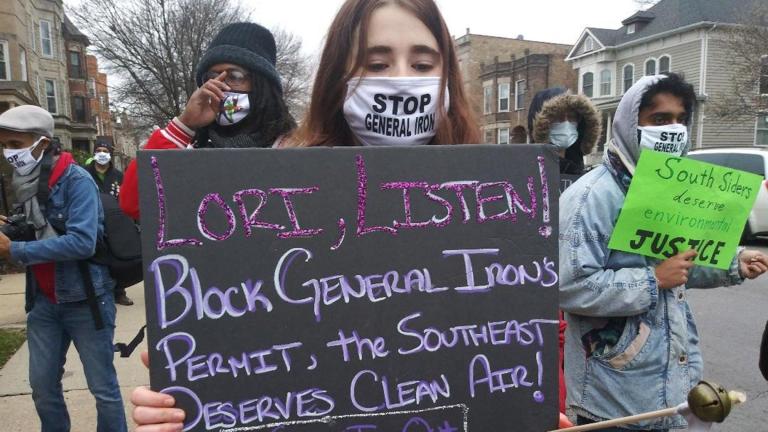Neighbors around the South Deering community are eagerly awaiting the city’s final word on whether to grant a permit to the controversial Southside Recycling plant.
Early this week, a city assessment said the plant would not have an adverse effect on resident’s health. But advocates, who’ve been protesting the plant, disagree.
Residents of South Deering and Hegewisch face risks of chronic disease, including cancer, greater than residents of most other Chicago neighborhoods. In addition, the rate of cancer in those neighborhoods is among the highest in Chicago, said Megan Cunningham, managing deputy commissioner of the Chicago Department of Public Health.
See: Southeast Side Metal Scrapper Would Not Have Adverse Effect on Residents’ Health: City Assessment
However, the study conducted by the city’s environmental consultant Tetra Tech found that the pollution would not make the threat of cancer greater than the benchmarks set by the Environmental Protection Agency.
In a statement, Southside Recycling said:
By CDPH’s own statements, Southside Recycling has been subject to the most rigorous and comprehensive study of a proposed industrial facility ever conducted in Chicago. The facts are clear: We have built the most environmentally conscious metal recycling facility in the country, but politicians, government officials, and the media are being cowed by a small but vocal opposition and their persistent false narratives and misinformation aimed at demonizing our business and recycling.
Yesenia Chavez, a Southeast Side resident, and a member of United Neighbors of the 10th Ward, said the neighborhood is already dealing with chronic disease — and that any conditions that might exacerbate that shouldn’t be present.
As a third-generation Southeast Side resident, she’s seen similar developments — and their impact on resident’s mental health — for a long time.
“To see high school students in distress, to see their anxieties through the roof because they do not understand why a metal recycling company is being located less than a half a mile across the street from where they’re being sent to develop their brains and develop as students … you can’t explain that, you can’t quantify that whatsoever,” Chavez said.





